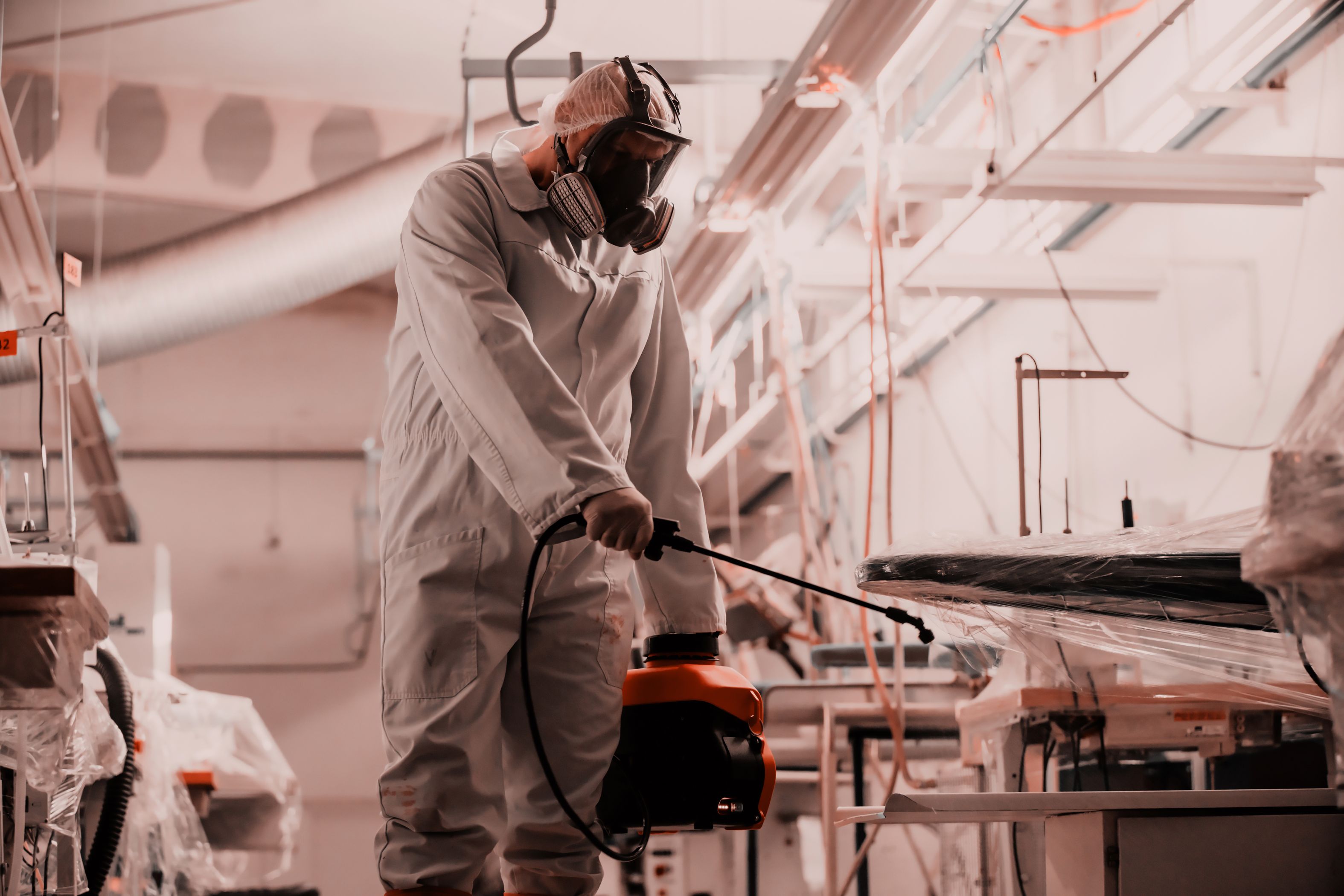CoronaVirus Office Disinfecting Company Bloomington
We are your source for a local Disinfecting Company that provides EPA chemical disinfection services for home and commercial business properties. Pay a visit to our team right now to get started quick.
What is the difference between cleaning and disinfecting? We safely handle hazardous and infectious waste streams daily. The machinery also breaks down traditional manual-sprayer size droplet into many smaller micron droplets, allowing for more even coverage of a targeted area. It is also important to note that NationalDisinfecting when conducting professional disinfection services use EPA List N chemicals.
Recurring disinfecting services benefit high traffic businesses who see a lot of customers and/employees on a daily basis. Coronavirus (COVID-19) is still novel, so our Coronavirus Task Force continually consults with the Centers for Disease Control & Prevention (CDC) for up-to-date solutions and utilize CDC approved and EPA registered disinfectants. All infected materials are cleaned, disinfected, and properly disposed of as biohazard waste The EPA says it’s best to follow the instructions on the disinfectant’s label and pay attention to the how long the product should be on the surface you’re cleaning. The agency reviews them and determines whether the company can safely make that claim. As your business schedules to reopen and return to regular operations, it is important to make sure the necessary precautions are taken. With strategically placed resources across the continent, National Disinfecting is the largest emergency response provider in the U.S. and offers the most comprehensive management of medical waste generated during the treatment of patients infected with the virus available. The disinfection application is dispersed in fine micron particles that will appear to hang in the air as they slowly settle onto all surfaces.
COVID-19 Office Disinfecting Services
Coronavirus (COVID-19) is still novel, so our Coronavirus Task Force continually consults with the Centers for Disease Control & Prevention (CDC) for up-to-date solutions and utilize CDC approved and EPA registered disinfectants. Coronavirus (COVID-19) is still novel, so our Coronavirus Task Force continually consults with the Centers for Disease Control & Prevention (CDC) for up-to-date solutions and utilize CDC approved and EPA registered disinfectants. We adhere to a stringent coronavirus demobilization process for our equipment, trucks and waste storage areas There has been some research on the effect of temperature and previous coronavirus strains. While use of a hospital-grade disinfectant should make the coronavirus inert, the EPA is currently not endorsing any product, even for List N.
CoronaVirus Cleaning Sanitizing Disinfecting
And an EPA spokesperson told ABC News they do not review other household products, such as vinegar or essential oil mixtures with regard to their effectiveness against viruses and bacteria. Cleanup procedures generally include cleaning of porous and non-porous surfaces, disinfecting of non-porous surfaces, cleaning and disinfecting of equipment, tools, and/or supplies used for cleanup process, and disposal of waste. The agency is taking several steps "to ensure that our system remains as safe and clean as possible," he told LAist this week. We will discuss common risks such as loss of key personnel, cyber security issues, fires, air quality issues, and vandalism, as well as geographical threats such as hurricanes or flooding in coastal areas, or severe winter weather in the northern US. We will also help you to identify risks that are unique to your business.
COVID Deep cleaning Disinfection Services
All of our cleaning and disinfection services use hospital-grade, EPA registered products to the exact manufacturer specifications including mixing and dwell time. What are Disinfecting Services?
Top Deep cleaning disinfection service Los Angeles County

Cutting corners could be risking infection. The EPA says it’s best to follow the instructions on the disinfectant’s label and pay attention to the how long the product should be on the surface you’re cleaning. The same article from Infection Control Today stated that at 39.2 degrees Fahrenheit, or 4 degrees Celsius, the virus could survive on surfaces for up to 28 days or longer. 3 Rather than taking a “one size fits all” approach, we deploy the industries widest range of technologies including chlorine dioxide gas, hydrogen peroxide vapor (HPV), aerosolized dry fogging, electrostatic spraying, wet fogging and ultraviolet light decontamination systems. The U.S. Environmental Protection Agency is arming consumers with a list of disinfectants that people can use to protect themselves from the novel coronavirus. Emergency and After Hours Response
Terms of Service
Disclosure Statement
DMCA
Privacy Statement
Contact